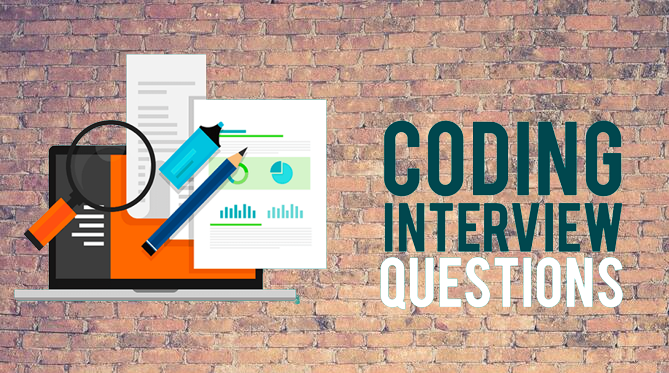When landing a job in the tech industry, coding interview questions can be your greatest ally or your most daunting challenge. These questions test your problem-solving abilities, algorithmic thinking, and understanding of computer science principles. But fear not! This article will guide you through the intricacies of coding interviews, equipping you with the knowledge you need to shine.
Understanding the Importance of Coding Interviews
Why Are Coding Interviews Crucial?
Coding interviews serve multiple purposes in the hiring process:
- Assess Problem-Solving Skills: They help employers gauge your ability to tackle complex problems.
- Evaluate Coding Proficiency: Your coding skills will be tested to see if you can write clean, efficient code.
- Determine Fit for the Team: Employers look for candidates who communicate their thought processes clearly and work well with others.
Common Coding Interview Formats
Different companies may employ various formats for coding interviews. Here are the most common ones:
- Technical Phone Screens: These are conducted over the phone or via video calls, and they usually involve solving coding problems in real time.
- On-Site Interviews: Candidates solve coding problems on a whiteboard or computer during in-person interviews.
- Take-Home Challenges: Candidates receive coding problems to solve at home within a specific timeframe.
Essential Coding Concepts to Master
Data Structures
Understanding data structures is fundamental to solving coding interview questions effectively. Here’s a breakdown of some key data structures you should know:
- Arrays: A collection of elements identified by index or key.
- Linked Lists: A sequence of elements where each element points to the next.
- Stacks and Queues: Collections that follow last-in, first-out (LIFO) and first-in, first-out (FIFO) principles, respectively.
- Trees: Hierarchical data structures, including binary trees, binary search trees, and AVL trees.
- Graphs: Representations of networks consisting of nodes and edges.
Algorithms
A solid grasp of algorithms is essential for tackling coding interview questions. Familiarize yourself with the following types of algorithms:
- Sorting Algorithms: These are quicksort, mergesort, and bubblesort.
- Searching Algorithms: Including binary search and linear search.
- Dynamic Programming: Techniques to solve complex problems by breaking them into simpler subproblems.
Preparing for Coding Interview Questions
Strategies for Effective Preparation
To ensure you’re well-prepared for coding interview questions, consider the following strategies:
- Practice Regularly: Use LeetCode, HackerRank, and CodeSignal to practice coding problems.
- Study Common Patterns: Identify common patterns in coding problems to make solving them easier.
- Mock Interviews: Conduct mock interviews with peers or use platforms that provide mock interview experiences.
Resources to Aid Your Preparation
Here’s a table highlighting some useful resources:
ResourceDescription
LeetCode: A platform with a vast collection of coding problems.
HackerRank Offers challenges and competitions to test coding skills.
Cracking the Coding Interview: A popular book that covers a wide range of interview questions and strategies.
YouTube Channels: Many channels offer tutorials and coding interview tips.
Common Coding Interview Questions
Types of Questions You Might Encounter
You’ll likely face various types of coding interview questions. Here are some examples:
- String Manipulation: Questions may ask you to reverse a string or find the first non-repeating character.
- Array and List Problems: You might need to find the maximum product of two integers in an array or merge two sorted arrays.
- Tree Traversals: Expect questions related to depth-first search (DFS) and breadth-first search (BFS).
- Dynamic Programming Problems: Questions such as the “0/1 Knapsack Problem” or calculating the Fibonacci sequence efficiently.
Example Coding Interview Questions
Let’s delve into a few specific examples to illustrate what you might encounter:
String Reversal
Question: Write a function that takes a string as input and returns the string reversed.
Example:
Python
Copy code
def reverse_string(s):
return s[::-1]
Two-Sum Problem
Question: Given an array of integers, return the indices of the two numbers so that they add up to a specific target.
Example:
Python
Copy code
def two_sum(nums, target):
num_dict = {}
for i, num in enumerate(nums):
complement = target – num
if complement in num_dict:
return [num_dict[complement], i]
num_dict[num] = i
Binary Tree Traversal
Question: Perform a level-order traversal of a binary tree.
Example:
Python
Copy code
def level_order_traversal(root):
if not root:
return []
result, queue = [], [root]
while queue:
level = []
for _ in range(len(queue)):
node = queue.pop(0)
level.append(node.val)
if node.left:
queue.append(node.left)
if node.right:
queue.append(node.right)
result.append(level)
return result
Tips for Success During the Interview
Communicate Your Thought Process
You must articulate your thoughts during the interview as you work through the problem. Here are some tips for effective communication:
- Explain Your Approach: Share how you plan to tackle the problem before diving into Coding.
- Ask Clarifying Questions: If a question isn’t clear, don’t hesitate to ask for more details. It shows you’re engaged and want to understand the problem fully.
Don’t Rush Your Solution
While managing your time is important, rushing can lead to mistakes. Take your time to think through the problem, and don’t hesitate to revise your code if needed. Remember, clarity and correctness matter more than speed.
Review Common Coding Patterns
Recognizing patterns in coding questions can help you solve problems more efficiently. Here are some common patterns:
- Sliding Window: Useful for problems involving subarrays.
- Two Pointers: Effective for finding pairs in sorted arrays or lists.
- Backtracking: Great for solving combinatorial problems.
Following Up After the Interview
Thank You Notes
Always send a thank-you note after your interview. It’s a polite gesture and reinforces your interest in the position.
Self-Reflection
Take some time to reflect on your performance. Consider what went well and where you could improve for next time.
Conclusion
Navigating coding interview questions may seem daunting, but you can excel with proper preparation, practice, and a positive mindset. Remember, each interview is a learning opportunity. Embrace the challenges, hone your skills, and confidently approach each question. By understanding the key concepts and strategies outlined in this article, you’re well on your way to securing that coveted tech position. Good luck, and happy Coding!





